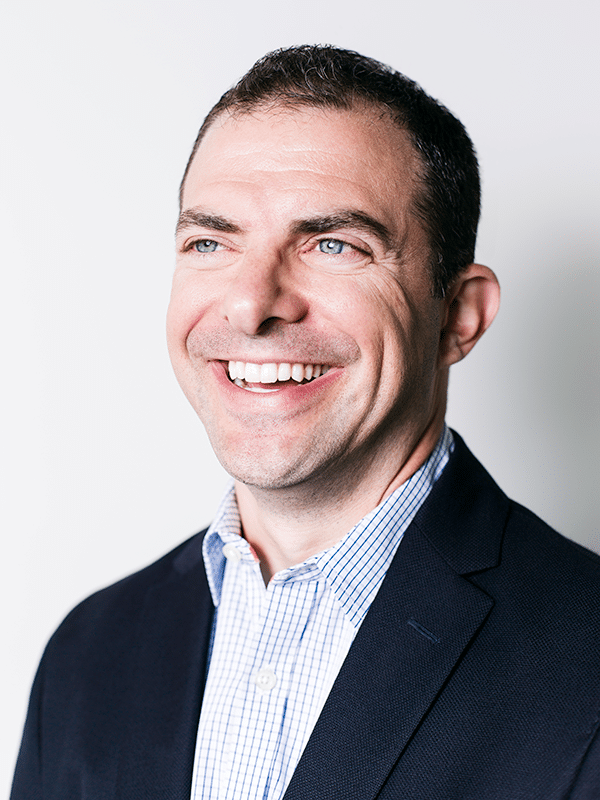Avi Epstein was accepted into Harvard Law School without a clear sense of what he would do with the degree. His goals became clearer when he took a seminar in private equity law—even if the path to getting into that industry still wasn’t clear.
“I had no real love for the law at that point,” he admits. “But once I learned more about private equity, I decided it was what I wanted to do, and a legal career could help me get there.”
That was in the late 1990s. In 2008, Epstein became the general counsel, chief compliance officer, and a principal with Sterling Partners, a venture capital and private equity firm in Chicago. The company invests in business services, education, and health-care services. Epstein’s responsibilities include advising on the legal issues in the roughly thirty companies in its portfolio.
In law school, he took as many courses as he could in investing and business. When interviewing for his first position, “I looked for firms that had a breadth of private equity clients and who had a reputation for nurturing younger lawyers,” he says. “Katten [Muchin Rosenman] was that place for me.”
Partnering UP
Sterling Partners collaborates with founders across three industries to help them grow. Here are just a few of their partners:
Business Services: AIX Group Inc., Brace Industrial Group, Prospect Mortgage
Education: School of Rock, Spartan College, Tribeca Flashpoint College
Health-care Services: Adeptus Health, Remedi Senior Care
While Epstein hoped his first law firm job would be a brief stepping stone, economic factors kept him on that step a bit longer than planned. Hired in the fall of 1999, the burst of the tech bubble in the early 2000s slowed business activity in many sectors, with investment companies that he hoped would be his next landing spot. “I kept my head down and did as much private equity work as was available,” he says.
Along the way, he dropped hints about finding an in-house position as general counsel or assistant general counsel, particularly in private equity. A senior counselor advised him to cool those ideas. “He said no investment firm is likely to hire someone with my experience to go in-house yet,” Epstein says. “He said private equity firms were happy to pay for outside counsel for my skills, that I would need operational experience before anyone would consider having me join their firm.”
Another adviser was more specific: look for a job that gave him that “inside-the-company” experience. “He said, ‘Find out how companies run, how they grow and fail, then work your way up to the senior level,’” explains Epstein.

What Epstein faced isn’t uncommon for the profession, of course. The distinction between lawyers in firms and those who serve as in-house counsel is in how the law is applied.
As he describes it, “Law-firm lawyers have a great depth of understanding in the substance of the law. But many have little sense of how that is applied to the business. Perhaps most importantly, the law firm orientation doesn’t lend itself to knowing how to take risks.” To get to that point, Epstein went on what he describes as many job interviews in search of the ideal training ground for his ambitions.
He ended up at Kaplan Professional, the professional education division of Kaplan. After two years as vice president of business affairs, he took on the additional role of general counsel of US operations. “The job showed me how what we do in legal affects opportunities and risk within the business,” he says. He adds that investing in information technology required a blend of financial, operational, and legal functions. “It was eye-opening,” he says. “There never was a period where I learned more.”
At Kaplan, Epstein was involved in a significant amount of mergers and acquisitions activity. He says those experiences ran the gamut from traditional acquisitions to joint ventures and business partnerships, and he says each case carried a business imperative to apply operational, financial, and accounting principles.
Despite so many varied and changing roles, the attorney says he was very comfortable in the position. Then he got a call from an old colleague at Katten—the same senior counselor who told him he wasn’t ready to be a general counsel—who said there was such a position being created at Sterling Partners. After an extensive interview process, he was hired.
“There probably were one hundred lawyers in Chicago alone who were every bit as qualified for this job,” Epstein says. But what Sterling wanted was an attorney with a solid background in both legal and operational investing principles. It also helped that with several education companies in Sterling’s portfolio, his familiarity with related regulations and relationships with the regulators would be valuable. But many soft skills are beneficial to every position. Epstein says his include being adaptable. “I can be happy in many places,” he says. “This job has so many facets, so many demands and much of it is very intense. Every day is different—I never know what will be on my desk in the morning. That’s exactly the way I like it.”
That has to be an understatement. Sterling, Epstein says, invests in mission-driven, outcomes-oriented companies. These currently include Results Physiotherapy, Radial, Brace Industrial Group, Meritas schools, and School of Rock.
Surgical Solutions, another of Sterling’s portfolio companies, is one that Epstein cites as an example of “a business where everyone wins.” The company equips, sets up, sterilizes, and repairs instruments used in minimally invasive surgical procedures in hospitals, and they provide on-site surgical technicians. “Surgical provides hospitals with a needed service, which allows them to reduce costs for patients and caters to the specific needs of doctors and nurses,” he says, adding that the company enables better use of caregivers while reducing overall costs.
The types of companies under management by Sterling typically have strong prospects, valuations between $10 million and $170 million, and are heavily rooted in traditional sectors that nonetheless have to evolve with changing technologies and changing markets. That can involve acquisitions and by his own admission, “I’m a deal junkie,” Epstein says. “I enjoy looking at what’s broken that we can fix.”
As Sterling zeroes in on an acquisition, Epstein works with the business principals to identify where a strategy can help make it grow, and he easily jumps into asking questions before any action is taken.
“Law-firm lawyers have a great depth of understanding in the substance of the law. But many have little sense of how that is applied to the business.”
His work in each deal involves formulating the offer, conducting due diligence, contract negotiations, and post-closing, working to assess and advise on the legal function in the acquired company.
Many of those properties are in regulated industries, but some companies are small enough they “aren’t on the regulators’ radar,” he says. In some cases, there is no staff lawyer, but when those companies grow to a certain size he guides them in establishing a general counsel position.
The list of tasks for this general counsel is a mile long. As the chief compliance officer, it’s even longer: since the enactment of the Dodd-Frank Wall Street Reform and Consumer Protection Act in 2010, most private equity firms have had to register with the Securities and Exchange Commission (SEC) as investment advisers.
“We spent the first eighteen months figuring out what was required to be compliant,” he says. “It involved our infrastructure, policies, and making regular filings, and we had to ask, ‘How do we do this without impeding our business?’” What he found is that Dodd-Frank compliance is very dynamic, with evolving expectations from the SEC.
Epstein says he participates in numerous industry groups as part of how he learns to think ahead in anticipation of rulings and how to interpret SEC memos.
While politics inevitably plays a role, the one-time aide to former astronaut and senator, John Glenn (R-Ohio), lumps those considerations into the category of things he cannot control.
What he can control, however, is the degree of risk associated with Sterling investments.
He finds that investors, many of whom achieved wealth through risk taking, can be surprisingly risk-averse in businesses they don’t directly manage.
“All business has some risk,” he notes, and part of his job is to advise and educate them on what those might be and how they are managed, mitigated, and ultimately priced into each investment. Due diligence plays a role long after the acquisition.
“The best part of my day is learning about new industries, identifying attractive areas to explore, and going out and finding experts,” Epstein says. So the dream from two decades ago is still alive for Epstein. He just needed a little patience to find it.


